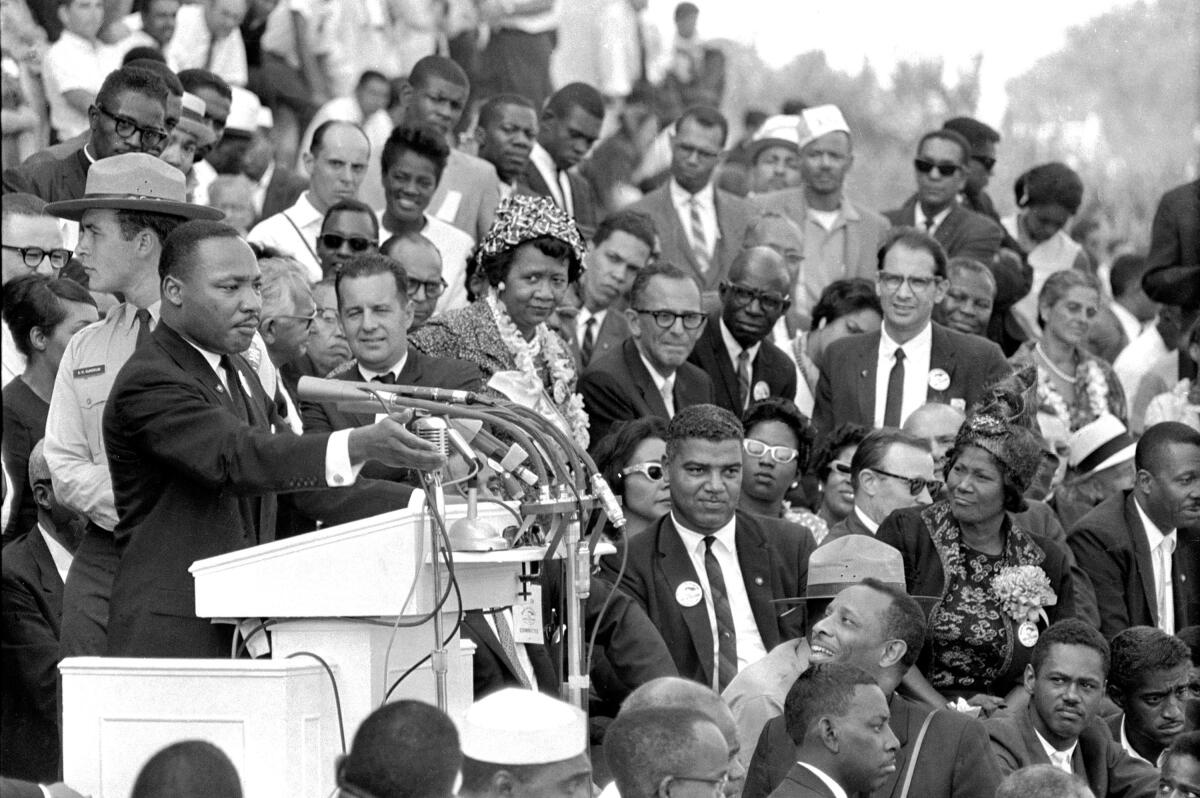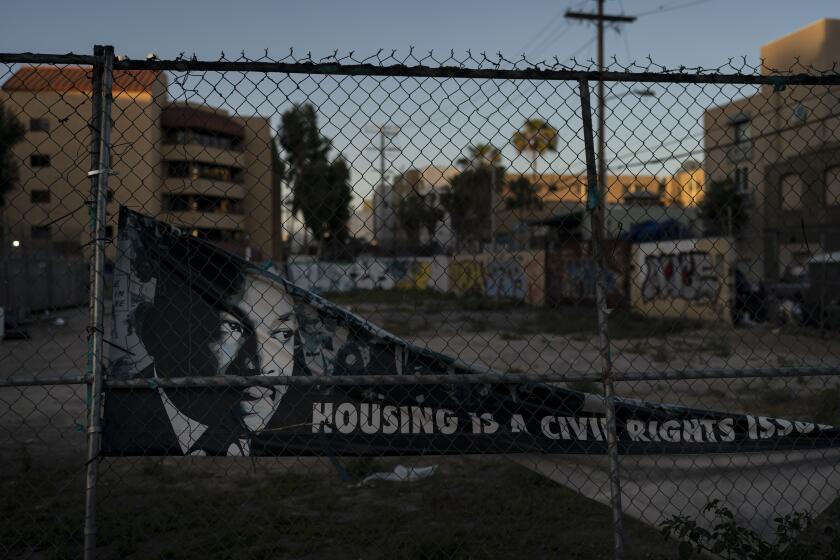Opinion: Immigrant communities are indebted to the civil rights movement. But when will they grapple with their own anti-Blackness?

- Share via
Sixty years ago this week, the March on Washington for Jobs and Freedom indelibly etched the civil rights movement into our nation’s collective memory through the Rev. Martin Luther King Jr.’s speech about a dream of justice for our collective future.
As a sociologist, I have studied the uses and misuses of King’s memory over the past 40 years. I witnessed just how deeply immigrant communities like my own are shaped by and indebted to the legacies of the civil rights movement. More powerfully, I found that learning about and grappling with the racial history of the United States offers immigrants new modes of consciousness and interconnection, opening up their worlds in powerful ways.
Yet the messy work of learning about the nation’s racial past also requires more painful, uncomfortable and ultimately transformative work: reckoning with our own immigrant communities’ histories of anti-Blackness.
So many Americans struggle to get beyond MLK 101: the non-threatening King of August 1963 on the steps of the Lincoln Memorial. His challenge to America goes much deeper.
Though the image of King and his visionary words have been foundational to the nation’s story of redemption and rebirth in the post-civil rights era, a recent Pew survey shows there’s a perception gap of the country’s racial progress.
While almost 60% of white adults believe there has been progress on racial equality in the last six decades, only 30% of Black adults believe so. But almost half of Latino Americans and Asian Americans polled share white Americans’ rosier picture of racial progress. The results are unsurprising in light of the long history of pitting immigrants against Black Americans to discredit claims of systemic racism and calls for racial justice.
For a scholar and a child of nonwhite immigrants like me, most glaring in the survey is the story that lies within the significant gap between white and Black Americans’ perceptions of just how far we’ve come, and how far we have to go. The story of the nonwhite, non-Black immigrants is the story we Californians ought to heed as we witness the anti-democratic politics that creep across the nation and threaten us all.
After all, immigrants have the civil rights movement to thank for the legal and cultural infrastructures that would be adopted to enfold Latino and Asian Americans in the multicultural democracy Black Americans fought for. The wave of the “minority rights revolution” of the 1970s and 1980s that included Latino rights and Asian rights activism was built on the backs of the Black Americans who fought for collective freedom. These immigrant movements would compare themselves to Black Americans as a strategy, claiming they were “like Black” to make demands that would resonate with the public, to garner the political power necessary to win recognition and political, material and social resources.
These movements, however, rarely acknowledged that the Black freedom struggle never ended, and that, in their pursuit of upward mobility, their own communities had excluded and even harmed Black communities.
Two decades ago, when labor organizers in Los Angeles began working to raise political consciousness around the exploitation of immigrant workers, they devised an Immigrant Workers Freedom Ride inspired by the civil rights movement’s Freedom Rides of 1961. The strategy would draw public attention to immigrant workers rights as civil rights deserving of political protection. Having received the support of Black civil rights leaders, 900 riders boarded 18 buses departing from 10 cities with 100 planned stops, including major sites of civil rights struggles.
The ride had a transformative outcome. In learning about and visiting the living histories of the civil rights movement, immigrant activists were better able to see their own experiences of exploitation, discrimination and “invisibilization” through a new lens. Their lives and collective struggles were interconnected with Black Americans’.
Similarly, in June 2018, the Council on American-Islamic Relations, the Muslim American civil rights organization known as CAIR, embarked on a civil rights tour in Alabama. The monthlong campaign followed 30 Muslim American civil rights leaders and activists from around the country on a tour of symbolic sites significant to the civil rights movement.
Through their reflections on social media, Muslim leaders made powerful connections between the present-day violence, surveillance and day-to-day discrimination experienced by Muslim American immigrants and the persistent violence and bravery of Black civil rights activists in the 1960s. They were overcome with emotion when they learned the roots of Muslim history in the United States, one rooted in the experiences of Black enslaved people.
And many became more aware of their immigrant communities’ strategic distance from Black Americans and their buy-in to the “model minority” identity. Muslim immigrant activists confronted the realities that their communities have also been anti-Black.
Through an honest, emergent understanding of their place and complicity in the racial order, Muslim organizers understood that reckoning with the past provided them a bridge for coalition-building with Black Americans.
In the coverage of the 2016 election cycle, you’ll hear this time and again: Latinos — immigrants and their families — are playing an important role in electing the next U.S. president.
Historical reckonings are messy work. They require a commitment to collective reflection and discomfort. Groups have to recognize when defensive postures emerge and examine the roots of their resistance. They must allow for the admission of harm they have caused and a dedication to doing better. Reckonings come with the recognition that change does not come quickly or easily, but with faith and persistence, in the spirit of the ongoing Black freedom struggle.
There’s no better place for these reckonings than California, where immigrant histories are diverse and deep, where the work to eradicate anti-Blackness would yield immeasurable gains in forging a wide solidarity politics across race and class among communities. As King wrote in his letter from the Birmingham jail just months before the March on Washington: “We are caught in an inescapable network of mutuality, tied in a single garment of destiny. Whatever affects one directly, affects all indirectly.”
Hajar Yazdiha is a professor of sociology at USC and author of the book “The Struggle for the People’s King: How Politics Transforms the Memory of the Civil Rights Movement.” @HajYazdiha
More to Read
A cure for the common opinion
Get thought-provoking perspectives with our weekly newsletter.
You may occasionally receive promotional content from the Los Angeles Times.










